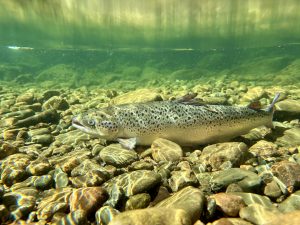The association today released New Brunswick Sea Lice Management (2009 to August 2011), an overview the challenges and successes experienced by New Brunswick salmon farmers in sea lice management and the steps farmers have taken toward the implementation of a Integrated Pest Management Plan (IPMP).
“This report clearly shows the best approach to sea lice management is an Integrated Pest Management Plan (IPMP),” says Pamela Parker, Executive Director of the Atlantic Canada Fish Farmers Association. “IPMP combines farm management practises with access to a variety of approved treatments that farmers can use strategically based on the life stage of the louse and environmental conditions such as water temperatures. This approach allows farmers to use the right product at the right time, thus reducing the amount of approved treatments used while keeping lice numbers very low.”
Sea lice are a naturally occurring parasite that affect wild and farmed fish alike although they are not an issue in all farming areas. New Brunswick salmon farmers are leading the way in developing and implementing effective, innovative and sustainable treatment and management strategies for sea lice. Besides investing in well-boat technology, salmon farmers are investing in a number of research projects to explore other non-chemical treatment options like cleaner fish and sea lice traps.
To read New Brunswick Sea Lice Management (2009 to August 2011), please click here.
The Atlantic Canada Fish Farmers Association is an industry-funded association that works on behalf of the salmon farming industry in New Brunswick and Nova Scotia. The ACFFA represents salmon producers in the Maritime region in addition to a wide range of supporting companies and organizations.
